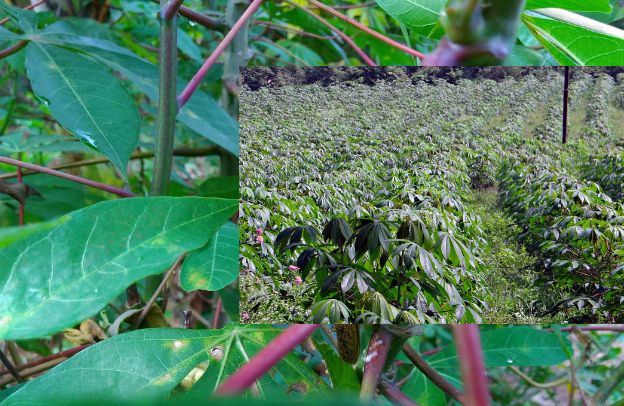Unlocking Nigeria’s Agricultural and Agribusiness Potential: A Golden Opportunity for the African Diaspora

Have you ever considered that the next big investment opportunity could be tied to Nigeria’s rich farmlands? As an African diaspora entrepreneur, you may be familiar with real estate or fintech investments, but agribusiness remains a largely untapped goldmine. Nigeria, with its vast arable land and growing population, is primed for agricultural transformation. But here’s the pressing question: With Africa spending over $50 billion annually on food imports (AfDB, 2023), why isn’t the continent feeding itself?
Take your Business Storytelling to the next level through our Story To Asset Transformation Framework.
This article delves into Nigeria’s agricultural and agribusiness potential, highlighting how diaspora entrepreneurs can not only tap into lucrative opportunities but also drive job creation and food security. The time has never been more right to invest in agribusiness, and here’s why.
See also: The Nigerian Agricultural Landscape: A Wealth of Opportunities
Nigeria’s Agricultural Potential: An Untapped Powerhouse
Nigeria’s Economy: A Shift from Agriculture to Services. Agriculture has historically been the backbone of Nigeria’s economy, driving employment and exports long before oil became dominant.
The country was once a global leader in palm oil, cocoa, and groundnuts, but years of underinvestment and increasing dependence on food imports have weakened the sector’s capacity.
Nigeria: Africa’s Largest Economy and Its Key Sectors
According to Trading Economics, Nigeria remains Africa’s largest economy, supported by a diverse mix of industries. While agriculture once led the economy, the services sector now dominates, accounting for 50% of total GDP.
Key Economic Sectors and Their Contributions
- Services (50%) – The largest contributor to GDP, with Information and Communication Technology (ICT) emerging as one of the fastest-growing segments, representing 10% of total output.
- Agriculture (23%) – Despite employing about 70% of the labor force, the sector has declined in its overall economic contribution, and Nigeria remains a net food importer.
- Crude Petroleum & Natural Gas (11%) – Though it accounts for a smaller share of GDP, oil and gas remain Nigeria’s primary sources of export revenue.
- Industry & Construction (16%) – This sector, including manufacturing and infrastructure development, plays a key role in economic expansion.
| Indicator | Last | Previous | Unit | Reference |
| Full Year GDP Growth | 2.50 | 11.50 | Percent | Dec 2023 |
| GDP Growth Rate (YoY) | 3.46 | 3.19 | Percent | Sep 2024 |
| GDP (Constant Prices) | 20,115,766.93 | 18,285,019.24 | NGN Million | Sep 2024 |
| GDP from Agriculture | 5,763,385.21 | 4,135,134.19 | NGN Million | Sep 2024 |
| GDP from Construction | 672,885.38 | 579,052.15 | NGN Million | Sep 2024 |
| GDP from Manufacturing | 1,651,873.40 | 1,547,525.55 | NGN Million | Sep 2024 |
| GDP from Mining | 1,119,836.14 | 1,042,809.04 | NGN Million | Sep 2024 |
| GDP from Public Administration | 407,231.74 | 390,870.53 | NGN Million | Sep 2024 |
| GDP from Services | 10,777,518.06 | 10,744,698.76 | NGN Million | Sep 2024 |
| GDP from Transport | 183,403.69 | 135,786.11 | NGN Million | Sep 2024 |
| GDP from Utilities | 118,136.54 | 213,278.51 | NGN Million | Sep 2024 |
| GDP Growth (Non-Oil Sector) | 3.37 | 2.80 | Percent | Sep 2024 |
| GDP Growth (Oil Sector) | 5.17 | 10.15 | Percent | Sep 2024 |
| GDP Growth Rate | 10.00 | 0.00 | Percent | Sep 2024 |
| Gross Fixed Capital Formation | 3,499,394.70 | 2,574,020.08 | NGN Million | Dec 2023 |
Source: National Bureau of Statistics, Nigeria
Balancing Economic Growth with Agricultural Revitalization
Nigeria is transitioning from a commodity-dependent economy to a service-driven powerhouse, fueled by rapid growth in technology, financial services, and digital communication. However, agriculture and industry remain vital for employment, food security, and sustainable economic diversification.
To reduce food imports and strengthen rural economies, strategic investments in agribusiness, mechanization, and value-added processing are essential. By leveraging both private and diaspora investments, Nigeria can reclaim its position as an agricultural powerhouse while sustaining long-term economic growth.
Abundant Arable Land and Favorable Climate
Nigeria boasts 84 million hectares of arable land, but only about 40% is currently cultivated. With a tropical climate that supports year-round farming, Nigeria is well-positioned to produce a variety of crops, from staple foods like cassava and rice to high-value export commodities such as cocoa and sesame seeds.
A Large and Growing Consumer Market
With a population exceeding 220 million people and projected to hit 400 million by 2050 (World Bank, 2023), Nigeria presents a vast consumer base. Urbanization is rapidly increasing, driving demand for processed and packaged foods, an area where agribusiness can thrive.
Government Policies Supporting Agribusiness
The Nigerian government has introduced initiatives like the Anchor Borrowers’ Program (ABP), aimed at providing smallholder farmers with financing. Policies such as the Agricultural Promotion Policy (APP) and the National Livestock Transformation Plan also create incentives for agribusiness investments, reducing the barriers for entrepreneurs looking to enter the space.
Key Agribusiness Opportunities for African Diaspora Investors
If you’re part of the African diaspora and considering where to channel your investments, agribusiness offers an array of profitable opportunities.
Cassava Processing: Turning Nigeria’s Strength into Profit
Cassava is a strategic crop for food security, poverty alleviation, and industrial development in Nigeria and across Africa. Recognizing its transformative potential, African leaders have placed agriculture at the center of their development agenda.
At the African Union Summit in July 2003, Heads of State committed to increasing agricultural investment to at least 10% of total public spending within five years—a move aimed at strengthening food production, economic growth, and rural development.
Cassava: A Catalyst for Economic Growth
During two high-level conferences in South Africa (August and November 2003), organized by NEPAD, IDEAA, and IFPRI, agricultural experts identified cassava as a key tool for poverty reduction. They proposed a Pan-African Cassava Initiative focused on:
- Market-driven growth – Expanding cassava’s role in local and global trade.
- Collective action – Encouraging farmer cooperatives and shared infrastructure.
- Private sector investment – Scaling up cassava processing and agribusiness opportunities.
- Research and innovation – Driving higher yields and sustainable farming practices.
Beyond Raw Consumption: Cassava’s Untapped Value
Despite its abundant production, a large portion of Nigeria’s cassava is consumed in raw form, limiting its economic benefits. However, investing in cassava processing and value-added industries can unlock significant revenue streams.
- Cassava Flour – A gluten-free alternative for the food industry.
- Industrial Starch – Used in textiles, pharmaceuticals, and paper manufacturing.
- Ethanol & Biofuels – A rising demand for cassava-based ethanol in renewable energy.
- Animal Feed – A key ingredient in Nigeria’s livestock and poultry sectors.
By scaling up cassava industrialization, Nigeria can boost exports, create jobs, and strengthen its position as the world’s leading cassava producer, transforming the crop from a subsistence staple into a global economic powerhouse.
Rice Farming and Processing
Despite being the largest rice consumer in Africa, Nigeria imports a significant portion of its rice needs. However, government restrictions on rice imports have created a demand-supply gap. Establishing modern rice mills and partnering with local farmers can provide high returns while reducing Nigeria’s import dependency.
Livestock and Poultry Production
With over 200 million people consuming meat and dairy products daily, Nigeria’s livestock sector is highly lucrative. Chicken production, in particular, is a billion-dollar industry, yet local supply falls short of demand. Investing in commercial poultry farms, dairy processing, and modern animal feed production can be highly profitable.
Agri-Tech and Smart Farming Solutions
The future of farming lies in technology. Diaspora entrepreneurs can introduce innovations like drone technology for precision farming, AI-driven soil analysis, and blockchain for supply chain transparency. These solutions enhance productivity, reduce waste, and optimize market access for farmers.
See also: Cassava and Sustainable Agriculture Practices In Nigeria
Overcoming Challenges: Strategies for Diaspora Investors
Despite Nigeria’s vast potential, agribusiness comes with challenges. However, these obstacles can be turned into opportunities with the right strategy.
Addressing Post-Harvest Losses
Nigeria loses 40% of its agricultural produce due to poor storage and transportation (UNEP, 2023). Diaspora investors can develop cold chain logistics, modern warehouses, and food processing plants to curb these losses and extend product shelf life.
Accessing Reliable Farmland and Infrastructure
While land is abundant, access to it can be complicated due to land tenure issues. It’s advisable to partner with local cooperatives, lease government-allocated agricultural lands, or invest in Special Agro-Industrial Processing Zones (SAPZs) that provide infrastructure support.
Financing and Investment Models
Securing financing for agribusiness can be challenging. However, diaspora entrepreneurs can explore funding through impact investors, agribusiness venture funds, or partnerships with development finance institutions like AfDB and USAID. Crowdfunding agribusiness projects targeting the diaspora community can also generate capital.
The Role of the African Diaspora: Driving Cassava Agribusiness Forward
African diaspora investors are uniquely positioned to revolutionize agribusiness in Nigeria. Here’s how they can make a significant impact.
Financing Agribusiness Growth
Each year, the African diaspora sends over $90 billion in remittances to Africa, according to the World Bank—an amount that exceeds foreign direct investment. By directing even a small portion of these funds into cassava processing and agribusiness ventures, significant economic opportunities could be unlocked, driving growth and transformation across the continent.
Top of Form
Bottom of Form
Technology and Innovation in Cassava Farming
Diaspora entrepreneurs can introduce AI-driven climate monitoring, blockchain traceability systems, and mechanized farming equipment to enhance productivity and quality control.
Policy Advocacy and Trade Facilitation
The African diaspora can engage with governments and industry stakeholders to:
- Push for agriculture-friendly policies, such as tax incentives for cassava processors.
- Support initiatives that improve rural infrastructure, including roads, irrigation, and storage facilities.
- Promote diaspora-led agribusiness cooperatives that facilitate large-scale investment and trade.
See also: Cassava Farming: A Gateway to Profitable Agribusiness for the African Diaspora
Food Security and Job Creation: The Bigger Picture
Investing in Nigerian agribusiness isn’t just about profits, it’s about transforming lives.
Reducing Food Insecurity
Nigeria faces significant food security challenges, with over 733 million people at risk of hunger (UNICEF, 2023). By boosting local food production, agribusiness investments can help close this gap and reduce reliance on food imports.
Job Creation for Youth and Women
Agribusiness: A Solution to Youth Unemployment in Nigeria
Nigeria’s youth unemployment challenge presents a unique opportunity for economic transformation through agribusiness. According to Statista, the country’s youth unemployment rate was 5.13% in 2023, based on data from the International Labour Organization (ILO). This figure highlights the percentage of unemployed individuals aged 15 to 24 relative to the total labor force.
The Employment Landscape: Challenges and Gaps
Youth unemployment in Nigeria remains disproportionately high compared to the general unemployment rate, which stood at 6% in 2018. Several factors contribute to this gap:
- Educational commitments – Many young people are enrolled in full-time education, limiting their participation in the workforce.
- Skill mismatches – A disconnect between academic training and market demands leaves many graduates unprepared for available jobs.
- Limited formal employment opportunities – The lack of industries capable of absorbing the growing workforce pushes many young people into informal or underpaid jobs.
Agribusiness as a Game Changer
Agribusiness has the potential to create millions of jobs, particularly for youth and women, transforming Nigeria’s employment landscape. With over 70% of the population engaged in agriculture, the sector holds immense opportunities for job creation, entrepreneurship, and economic growth. Key areas for investment include:
- Mechanized Farming – Enhancing productivity through modern equipment and techniques.
- Food Processing & Value Addition – Transforming raw produce into higher-value products for local and export markets.
- AgriTech & Digital Solutions – Leveraging technology for smart farming, supply chain management, and market access.
- Agribusiness Incubation & Vocational Training – Equipping young entrepreneurs with skills and funding to start and scale agro-based enterprises.
By prioritizing agribusiness investments, skill development, and financial inclusion, Nigeria can turn its youth unemployment challenge into an economic advantage, fostering sustainable growth, food security, and long-term prosperity.
Strengthening Africa’s Position in Global Trade
Nigeria has the potential to become a global agricultural powerhouse, exporting processed goods rather than raw commodities. Diaspora-led agribusiness ventures can help position Nigeria as a key player in global agricultural trade, increasing foreign exchange earnings and economic stability.
How to Get Started: A Roadmap for Diaspora Investors
To get started in Nigerian agribusiness, the first step is to conduct thorough research and identify your niche. Consider whether you want to focus on crop production, processing, agritech, or exports. Take time to study market trends and familiarize yourself with the unique challenges and opportunities that each sector presents. Understanding these factors will help you make informed decisions and target the right area for investment.
Next, it’s important to connect with local partners and cooperatives. Establishing strong relationships with Nigerian farmers, agribusiness associations, and cooperatives can ease your market entry and help reduce risks. These connections provide invaluable local insight, making it easier to navigate the business environment and ensure that your venture is set up for success.
Finally, exploring funding opportunities and government incentives is a crucial step. Take advantage of diaspora investment programs, agribusiness grants, and government initiatives like the Nigeria Incentive-Based Risk Sharing System for Agricultural Lending (NIRSAL).
These programs are designed to support investors in the agricultural sector, offering financial backing and reducing the risks associated with starting a business in Nigeria.
Implement a Scalable Business Model
Start small, test your business model, and scale up gradually. Consider franchise models, contract farming, or export-driven processing plants for long-term growth.
See also: Best Financing Strategies For Small And Medium-Scale Farmers: What You Need To Know
Conclusion: Seizing the Moment
Nigeria’s agricultural sector holds immense potential, and the African diaspora has a crucial role to play in unlocking it. Beyond profits, investing in agribusiness contributes to food security, job creation, and economic transformation. The time to act is now to seize the opportunity and be part of Africa’s agricultural revolution.
Take your Business Storytelling to the next level through our Story To Asset Transformation Framework.





